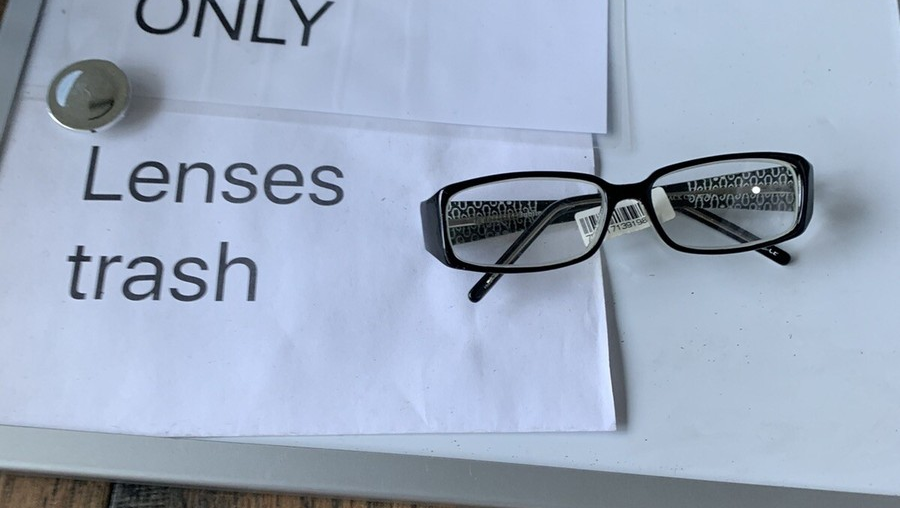Now Reading: How to Clean Cloudy Glasses: 5 Powerful Ways to Restore Shine in 2025
-
01
How to Clean Cloudy Glasses: 5 Powerful Ways to Restore Shine in 2025
How to Clean Cloudy Glasses: 5 Powerful Ways to Restore Shine in 2025

Table of Contents
If you’ve ever pulled a glass from your kitchen cabinet only to find it looking cloudy, foggy, or covered in a white film, you’re not alone. Cloudy glasses are a common issue in many households, and they can be both frustrating and embarrassing especially when guests are around. The good news is that cloudy glasses can often be restored to crystal-clear condition using simple household solutions.
In this article, we’ll explain what causes cloudy , how to clean them effectively, and how to prevent the cloudiness from coming back. Whether you’re dealing with hard water stains, etching, or soap residue, we’ll help you bring the sparkle back to your glassware.
What Causes Cloudy Glasses?
Before jumping into solutions, it’s important to understand what’s causing the problem. There are mainly two reasons your might be cloudy:
- Hard Water Deposits:
If your tap water contains high levels of minerals like calcium and magnesium, it’s considered hard water. When hard water evaporates from your , it often leaves behind a cloudy, white film. This is especially common in homes without water softeners. - Etching:
If your have a permanent foggy or frosted look, even after washing, they might be scratched or etched. This happens when glass is exposed to harsh detergents or overwashed in the dishwasher. Etched can’t usually be fixed, but you can prevent further damage with a few precautions.
Easy Ways to Clean Cloudy Glasses
Now that you know what’s causing the cloudiness, let’s talk about solutions. Here are some tried-and-tested methods to get your looking new again.
1. Vinegar Soak (Best for Hard Water Stains)
White vinegar is a natural and effective solution for mineral deposits.
Steps:
- Fill a bowl or your sink with equal parts white vinegar and warm water.
- Soak the glasses for 10 to 30 minutes.
- Use a soft sponge or cloth to gently scrub each glass.
- Rinse thoroughly with warm water and dry with a lint-free towel.
This method helps dissolve the mineral buildup and restore shine without scratching the glass.
2. Baking Soda Paste
For stubborn stains, try baking soda.
Steps:
- Mix 2 tablespoons of baking soda with a small amount of water to make a paste.
- Apply the paste to the cloudy areas using your fingers or a soft cloth.
- Let it sit for a few minutes.
- Rinse and wash the glasses with warm water and dish soap.
Baking soda is mildly abrasive, so it removes buildup without damaging your glasses.
3. Denture Tablets
Denture cleaning tablets aren’t just for teeth. They can clean glass too.
Steps:
- Fill a bowl or your sink with warm water.
- Drop in a denture tablet and let it fizz.
- Soak the glasses for 10 to 20 minutes.
- Rinse well and dry.
This is a great method for a quick deep clean, especially if you’re in a hurry.
4. Lemon Juice and Salt
Lemon is a natural acid that works well against hard water stains.
Steps:
- Cut a lemon in half and dip the cut side in table salt.
- Rub the lemon directly on the glass.
- Let the juice sit for 5 minutes before rinsing.
- Wash with warm water and dry.
This method adds a refreshing scent along with effective cleaning.
5. Commercial Glass Cleaners
There are several products available specifically for removing hard water stains from glassware. Look for non-toxic, biodegradable cleaners with good reviews. Always read the label to make sure the product is safe for food surfaces.
How to Prevent Cloudy Glasses in the Future
Once your glasses are clean, it’s important to keep them that way. Here are a few simple habits to help prevent cloudiness from returning.
Use a Rinse Aid in the Dishwasher:
Rinse aids help water sheet off the glass, reducing spots and deposits. Make sure your dishwasher’s rinse aid compartment is filled.
Switch to a Gentler Detergent:
Some dishwashing detergents are too harsh and can damage your glassware over time. Look for products labeled as gentle or glass-safe.
Avoid Overwashing or Using Too Much Detergent:
Too much soap or too many dishwasher cycles can contribute to etching. Use only the recommended amount of detergent.
Hand-Wash When Possible:
To preserve delicate or expensive glasses, hand-wash with warm water and mild dish soap. Dry with a soft microfiber towel to prevent spots.
Consider a Water Softener:
If your home has very hard water, installing a water softener can help protect your plumbing and appliances, not just your glassware.
Are Cloudy Glasses Always Fixable?
Unfortunately, not always. If your glasses have been etched, the damage is permanent. Etching feels rough to the touch and looks like fog or scratches that won’t wash off. In these cases, the only solution is to replace the glassware.
However, if the cloudiness is due to hard water or soap buildup, you can almost always restore them with the cleaning methods mentioned above.
Conclusion
Cloudy glasses might seem like a small annoyance, but they can impact your kitchen’s overall appearance and your dining experience. Fortunately, most cloudy glass issues can be easily fixed with common household items like vinegar, baking soda, or lemon juice. By understanding the cause and taking a few preventive steps, you can enjoy sparkling clean glasses every time.
So the next time you reach into the cabinet and pull out a foggy glass, don’t toss it just clean it using one of these simple methods. Your glassware will thank you.
Read More:- Shobha Realty Launches Its Most Luxurious Project Yet—Full Details Inside 2025






















